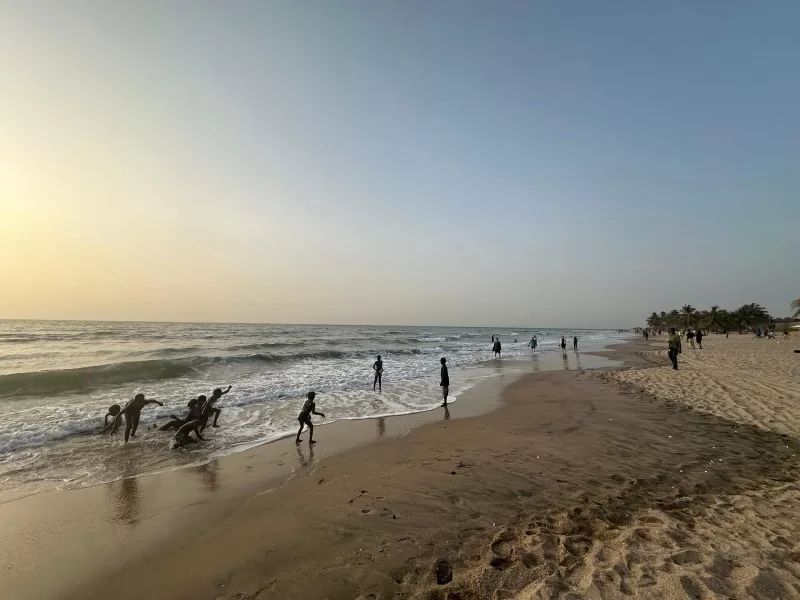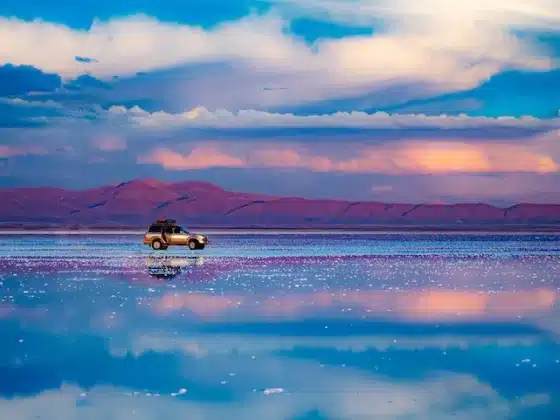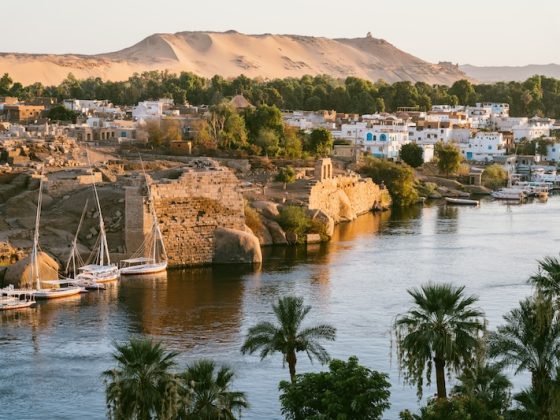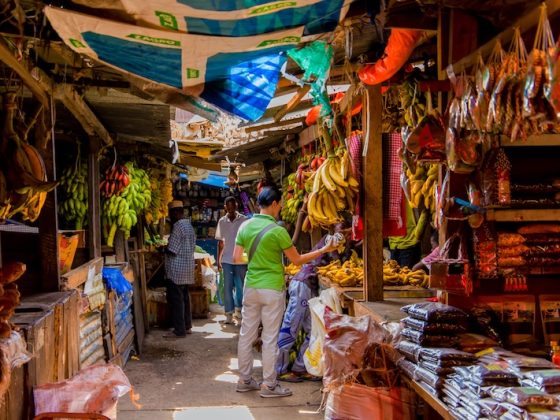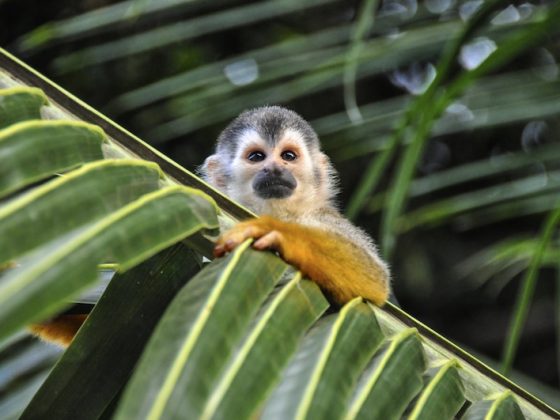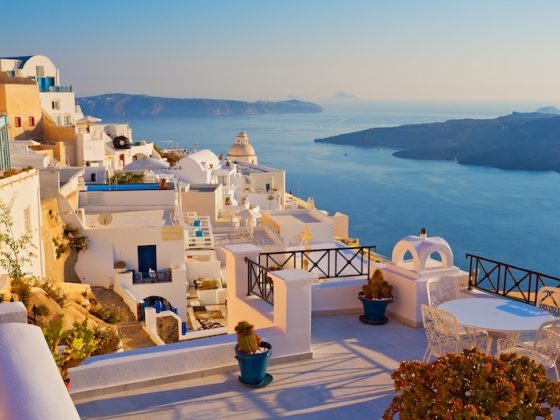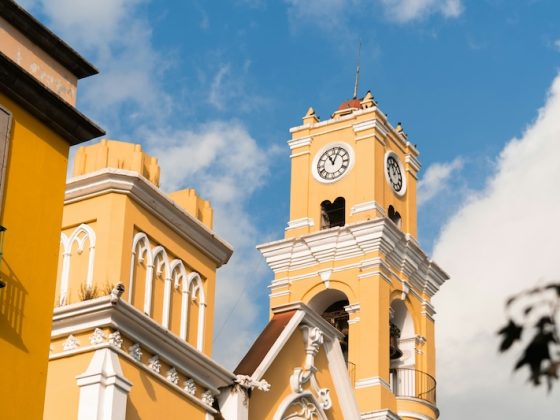As remote work continues to reshape global travel, digital nomads are exploring new options beyond Bali and Lisbon and turning their attention to Africa. The Gambia, Africa’s smallest mainland country, offers an intriguing proposition: a low-cost, culturally rich environment framed by beaches, mangroves, and the winding River Gambia.
Known since the late 1970s as the “Smiling Coast of Africa,” the nickname was coined during a US-led tourism campaign partly inspired by Alex Haley’s Roots and partly by the narrow, upturned arc of The Gambia on the map, which resembles a welcoming grin. More importantly, it captures the legendary warmth and hospitality of Gambian people, whose friendly smiles meet newcomers at every turn.
With strategic government initiatives and a burgeoning expat community, this “Smiling Coast” may soon rival long-standing nomad favorites.
Touching down at Banjul International Airport, visitors who have been there immediately express themselves enveloped by tropical humidity and the gentle bustle of The Gambia’s capital. Though home to just over 40,000 residents, Banjul’s markets provide vibrant produce, colorful textiles, and the melodic banter of traders. Riverfront cafés spill onto pavements, offering fresh fish and ginger beer against a backdrop of kora music. The city’s relaxed tempo, where punctuality concedes to conversation, hints at the unhurried lifestyle that digital workers crave.
Read more like this: Top 10 Things to Know if You’re Moving to Bali
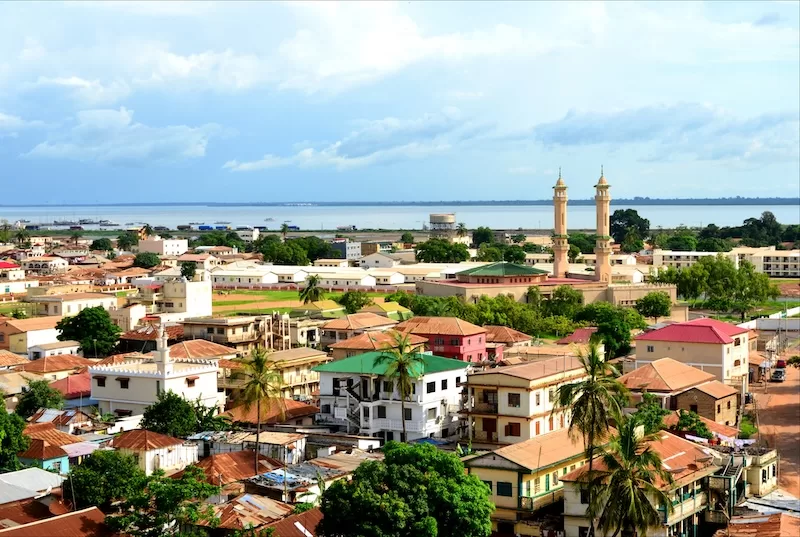
Gambia – Nature’s Playground
Beyond urban confines, The Gambia’s 80-kilometer coastline highlights unspoiled beaches like Cape Point and Kotu, where hammocks sway beneath casuarina trees. Inland, the Abuko Nature Reserve and Kiang West National Park teem with monkeys, crocodiles, and over 500 bird species, an ornithologist’s delight. Guided tours range from half-day excursions (approximately £30) to multi-day eco-camping adventures. With temperatures averaging 21°C–29°C in May and rarely exceeding 31°C, the climate is conducive to both work and exploration year-round.
Cultural Immersion and Community Networks
As a former British colony,English is the official language of The Gambia, which makes daily life for visitors easier. But most Gambians speak a number of local dialects, including Mandinka, Pulsar, and Wolof. And, as a predominantly Muslim nation (approximately 96% of Gambians are Sunni Muslims), greeting people is an important part of daily life. Even saying “Salaam Aleikum” (peace be upon you) demonstrates respect and a genuine desire to engage with local culture. Bear in mind that traditional Gambian greetings often extend into inquiries about one’s family, health, and overall well-being.
Family underpins Gambian life. If invited into a home, express genuine interest in your host’s relatives and share kindly about your own. Accept hospitality, tea, snacks, or a meal with gratitude; declining can be seen as discourteous. Gambians are famously hospitable; many remote workers find themselves invited to family meals where jollof rice and domoda (peanut stew) are served with generous hospitality.
Read more like this: Somaliland, Africa’s Forgotten State
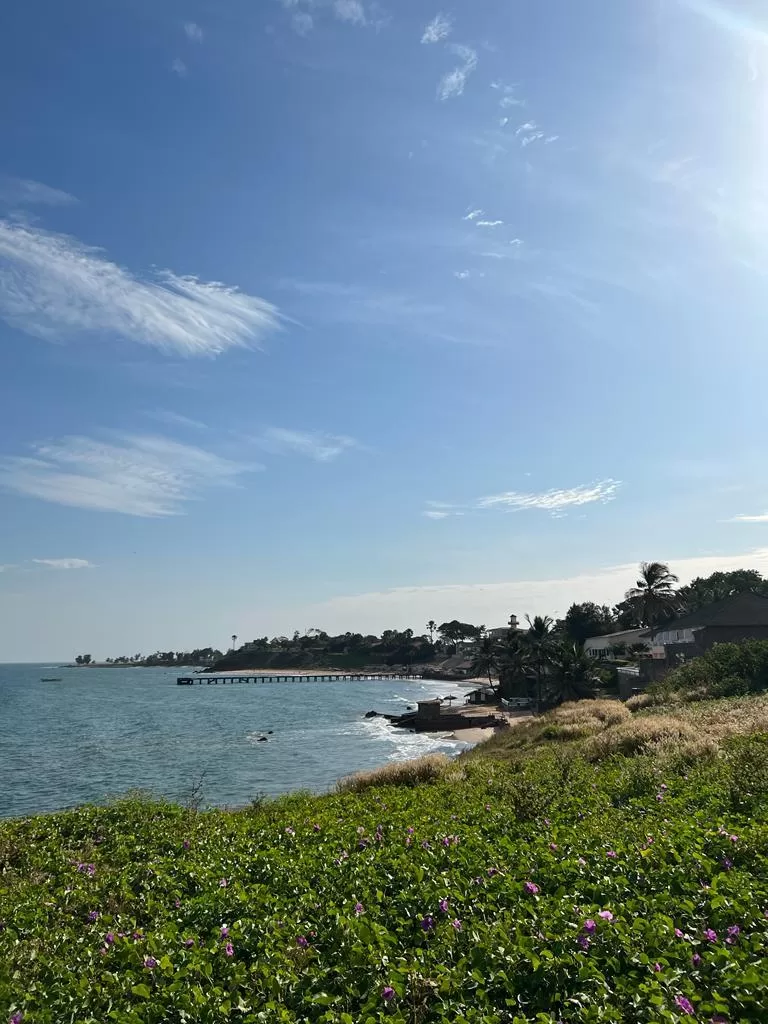
Stretching Your Dollar (and Euro) Further
Among The Gambia’s most compelling attractions is its affordability. The local currency, The Gambian Dalasi (GMD), offers favorable exchange rates for individuals earning in stronger Western currencies. Monthly rent for a comfortable one-bedroom apartment in Banjul or nearby Serekunda can be as low as £250–£350, while local meals often cost under £2. With the dalasi trading near 80 GMD to €1 and 71 GMD to $1, salaries paid in euros or U.S. dollars enjoy considerable purchasing power. High-quality domestic help, laundry services, and weekend excursions up the river are likewise modestly priced, allowing nomads to reinvest savings in experiences, be it a guided eco-tour or a local language class.
Connectivity: Progress Amid Challenges
For digital nomads, you require an internet connection to conduct business. Internet availability in The Gambia climbed from 44.0 users per 100 people in 2022 to 45.9 per 100 in 2023, FRED, while mobile cellular subscriptions reached roughly 101 lines per 100 inhabitants in 2021, data.albankaldawli.org. While 93 percent of urban areas enjoy 4G coverage courtesy of providers like Africell and QCell, real-world speeds often lag behind global averages. These shortcomings are compounded by frequent power cuts from the national utility company, NAWEC, which can last several hours and disrupt even the best mobile signal, especially in neighborhoods like Kotu where outages are daily. Savvy nomads, therefore, prioritize accommodation with a backup generator or inverter and often add a portable Wi-Fi repeater to ensure uninterrupted work.
Several local ISPs now compete for your business, with plans and performance that vary widely. For instance, Insistnet’s “Na Korda” package offers 4 Mbps unlimited data for 2,300 GMD/month (about €35), whereas QCell’s comparable plans tend to be pricier. If your home connection falters, you can tether via a Gambian SIM card, many expats top up via Western Union to get the best rates when loading dalasi onto their phones.
Encouragingly, the government’s National Digital Economy Master Plan launched in May 2024, (2024–2034), promises major upgrades: expanded fiber-optic networks, new data center builds, and incentives for tech startups. Early signs include a public–private broadband pilot launched in Banjul’s business district.
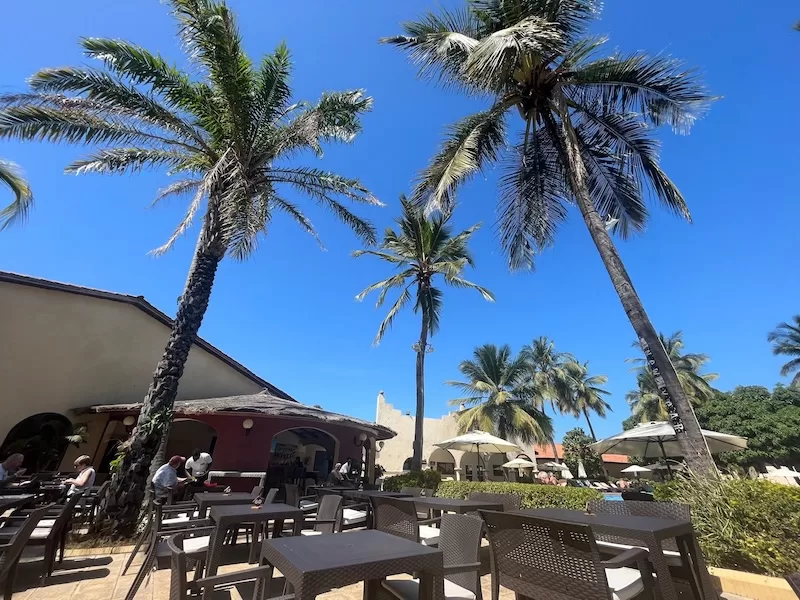
Co-Working and Community
Beyond working from home, you’ll find three well-equipped co-working spaces in Greater Banjul:
- AFB Workspace (Kotu, Brusubi & Kairaba Avenue)
- The Disruptive Lab (Bakau)
- The Hub (Kairaba Avenue)
Each offers daily passes, memberships, and regular meet-ups—ideal for forging connections and troubleshooting those inevitable connectivity hiccups.
Notwithstanding these digital efforts, transportation logistics remain a hurdle. Limited direct flights to Banjul can push up transit times and costs, while domestic ferries and buses, though inexpensive, are prone to delays. Reliable internal travel often means hiring a private driver or allowing extra time for connections.
- Cash Is King: Credit and debit cards are rarely accepted outside major hotels. ATMs levy both withdrawal and conversion fees, so many expats send dalasi to themselves via the Western Union as the most economical way to keep cash on hand.
- Visas and Entry: Passport holders from 42 countries enjoy visa-free access; nationals of 19 countries can secure e-visas online; 14 receive visas on arrival. However, citizens of 117 nations must obtain a visa in advance. Confirm requirements at least eight weeks before travel. Europeans typically receive a 28-day stamp on arrival and can extend month-by-month at the immigration office for 2,000 GMD (around €30).
- Healthcare: While primary clinics are available in major towns, advanced care often requires evacuation to Dakar, Senegal. Comprehensive international health insurance with evacuation cover is non-negotiable.
- Safety: Crime rates are low, but standard vigilance applies, particularly in crowded markets or at night. Road conditions vary; using registered taxis or trusted ride-hailing services is advisable.
- Transport: Direct flights to Banjul are limited, so many travelers transfer through Dakar or Istanbul. Domestic buses and ferries along the river are affordable but prone to delays; renting a private car with a driver can be a worthwhile investment for exploring at your own pace.
The Time-Zone Advantage
Operating on GMT+0 throughout the year, The Gambia aligns perfectly with London, Lisbon, and other European hubs. This synchrony helps with scheduling international meetings and fosters a healthy work-life balance, with odd-hour calls or calendar gymnastics required.
Read more like this: The Ultimate Guide to Becoming a Successful Digital Nomad
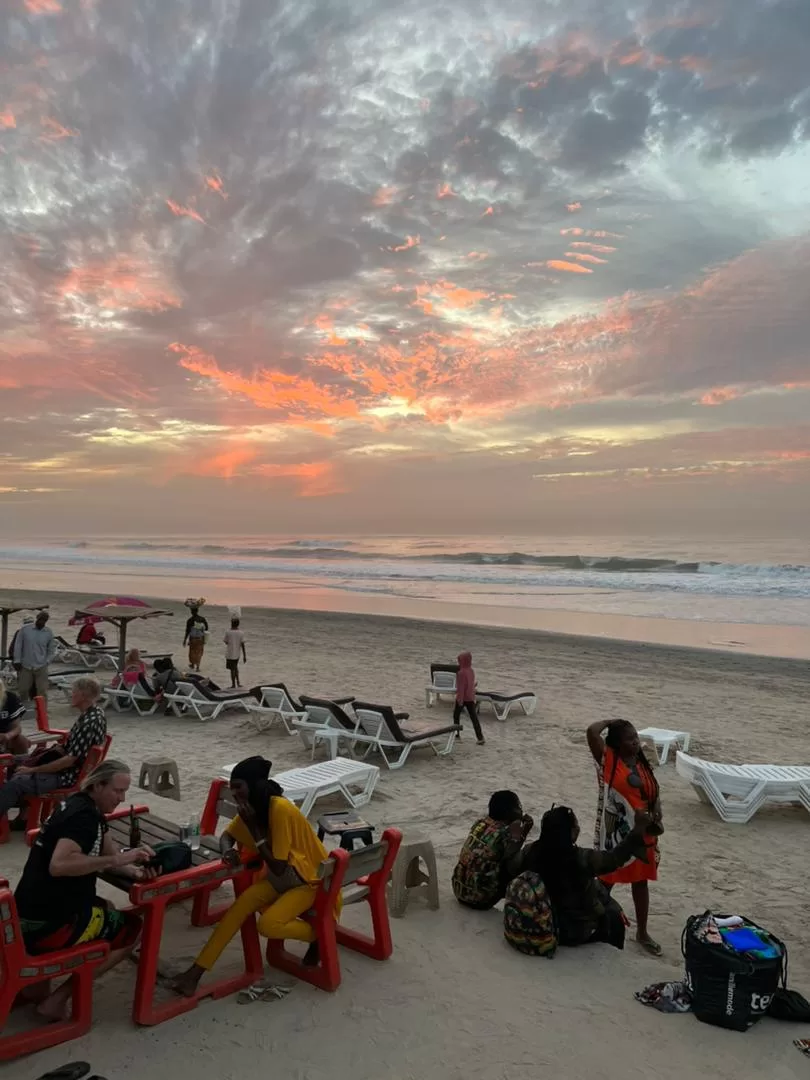
The Road Ahead
International tourism in The Gambia climbed to 206,836 visitors in 2023, a 13 percent increase from 2022, and double the level seen in 2021, highlighting the tourism sector’s recovery and its contribution of over 14 percent to GDP. Although still emerging on the global nomad map, The Gambia is laying the groundwork to support a thriving digital community. Government incentives for tech investment, improving broadband, and a naturally inviting climate to combine to create fertile ground for remote professionals. For nomads seeking more than just a change of scenery, yearning instead for genuine cultural engagement, affordable living, and a tranquil coastline, The Gambia may well be the next stop.
The Gambia offers not only a workspace but a lifestyle: one where slow-living and productivity, leisure and cultural discovery coexist beneath the West African sun.
About the Author
Istanbul-born Mergim Ozdamar is a London-based marketing consultant and freelance writer with a passion for food, culture, and travel. She is the editor of The Mediterranean Magazine.
Contact Author
"*" indicates required fields
Stay Ahead on Every Adventure!
Stay updated with the World News on Escape Artist. Get all the travel news, international destinations, expat living, moving abroad, Lifestyle Tips, and digital nomad opportunities. Your next journey starts here—don’t miss a moment! Subscribe Now!
